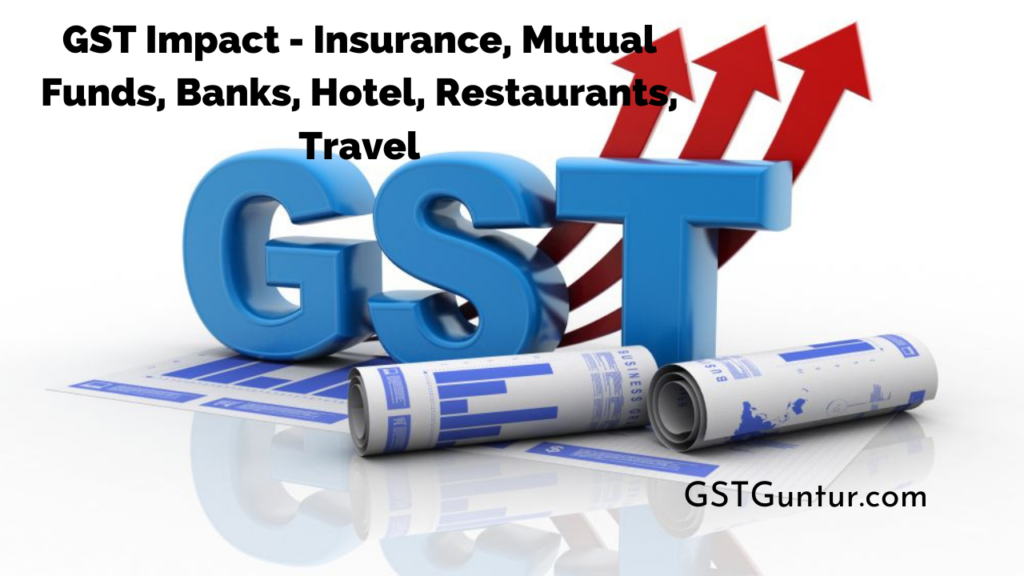GST Impact: GST is an indirect tax system levied upon the manufacture, sale and consumption of goods. GST is a single tax system that replaced all the previous indirect tax systems such as Sales tax and Value added tax. It is in force since 1st July 2017 to bring out uniformity in the taxation system on manufacture, sale and consumption of goods. Following were the primary objectives of implementing the single taxation system.
To remove the cascading effect of taxes to remove the tax on taxes easily.
To reduce tax evasion and corruption in the system.
To implement consumption-based tax instead of manufacturing.
To implement a single taxation system by absorbing all indirect taxes.
To bring about uniformity in the taxation system on manufacture, sale and consumption of goods over the country.
To improve upon the country’s GDP.
- Central GST: Goods and service tax levied at the centre.
- State GST: Goods and service tax levied at the state level.
- Dual GST: GST levied at state and centre concurrently.
Impact of GST
Given below is the overview of the impact of GST on Insurance, Mutual funds, Restaurants, Travel and hotels. Each sector is discussed in further detail below.
The expense ratio on mutual funds will go up 3%.
Transaction fees for financial services such as banking transactions and credit cards will increase as they will be taxed at 18%, a 3% increase from the previous 15%.
The premium amount on the insurance policies will increase.
Rates on hotel stays are applicable as per the tariff. Depending upon the tariff the applicable tax rates are 28%, 18% and 12%.
18% tax rate will be levied upon air-conditioned restaurants while non-AC restaurants will attract a 12% GST.
Transport services such as Ola and Uber will get cheaper and attract 5% GST, a deduction from the previous 6% but AC and first-class travel will get expensive.
GST is applicable on the risk part of the premium in the case of single premium annuity policies with 10% tax levied on the premium charged from the policyholder. In other life insurance business policies, 25% of the premium is applicable in the first year and 12.5% in the subsequent years.
In the case of term insurance plans in which the entire premium paid by the policyholder is only towards the risk cover, the applicable GST rate will be 18%.
In the case of ULIP plans the GST will be deducted from the premium. The premium payable doesn’t change in the case of ULIP plans and hence the fund value will change accordingly when GST comes into effect.
GST Impact on Mutual Funds
The levy of GST for mutual funds will be only on the total expense ratio (TER) of the mutual fund and therefore the impact of GST on the returns of mutual funds will be largely marginal. The expense ratio is the measure of the cost incurred by an investment company to operate its mutual fund commonly known as the expense ratio of mutual fund houses will go up by 3%. According to the SEBI guidelines, AMCs can levy charges only within the limits prescribed under the regulations.
GST Impact on Hotel Stays
Previously, domestic hospitality paid taxes in the range of 18-25% which includes the luxury and service tax. But now under the GST system, stays at 5-star hotels will get expensive.
For tariff amounts of 7,500 and above the GST rate will be set at 28%.
For tariff rates ranging between Rs. 2,500 and Rs. 7,500, the applicable GST rate will be 18%.
For tariff rates ranging between Rs. 1000 and Rs. 2,500, the GST rate applicable is 12%.
Hotels and lodges that charge less than Rs. 1000 are exempted from the GST.
Value-added tax ranging from 12.5%-14.5% in different states.
Service Tax(5.6%), Krishi Kalyan cess(0.2%) and Swachh Bharat Cess(0.2%).
For AC restaurants, the GST applicable is 18% on the food bill.
For non-AC restaurants, the GST applicable is 12% on the food bill.
For restaurants with both AC and non-AC facilities, the GST rate will be as per the AC restaurants only i.e. 18%.
Non-AC train travel is exempt from GST, whereas first-class and AC travel will get expensive due to tax hikes from 4.5% to 5%.
Conclusion on GST Impact
GST came as a crucial tax reform since the Independence of India and it needs to be handled with utmost care and with improvement from time to time as applicable. Also, it is the responsibility of the central and the state government to conduct awareness programs among the various stakeholders.
